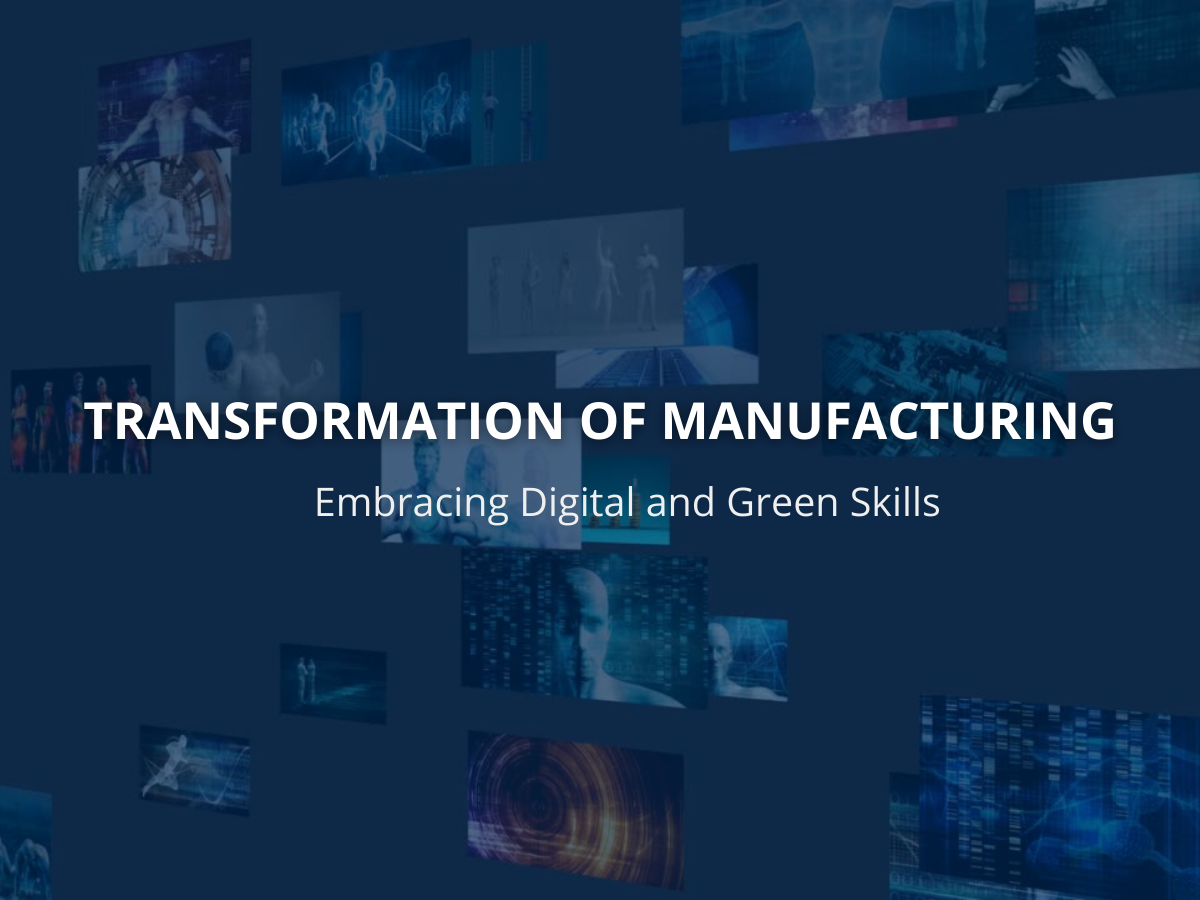Transformation of Manufacturing: Embracing Digital and Green Skills

The shift towards sustainable practices and digital solutions is becoming increasingly important in all sectors, and advanced manufacturing is no exception. Currently, more than three-quarters of companies in the EU face difficulties in finding the necessary skilled workforce since about 44% of adults undertake training on a regular basis, according to Eurostat figures[1]. To date, machine tools, robots and automation systems have gone from being simple mechanical tools to true mechatronic systems (with the integration of mechanical, electrical, and computer engineering), thus encouraging the interaction between mechanics, information technology and electronics.
The digital and green transitions are two inevitably interlinked megatrends as the advancement and investment in digital technologies establish the necessary groundwork for the green transition. Utilizing innovative digital techniques reduces the excessive use of natural resources, thus enabling manufacturing sustainability. On this note, digitalisation, environmental sustainability/greenification, automation/mechatronic systems and robotics create a picture of what a 2030 advanced manufacturing workforce will look like and, importantly, what will need to be done to secure the workforce possess the required skills for the digital and green transition of manufacturing.
In this paper, you will find information about:
- The current state of play
- Dual Shortage: Skills and Labour
- Emerging Skills
- Focus areas
